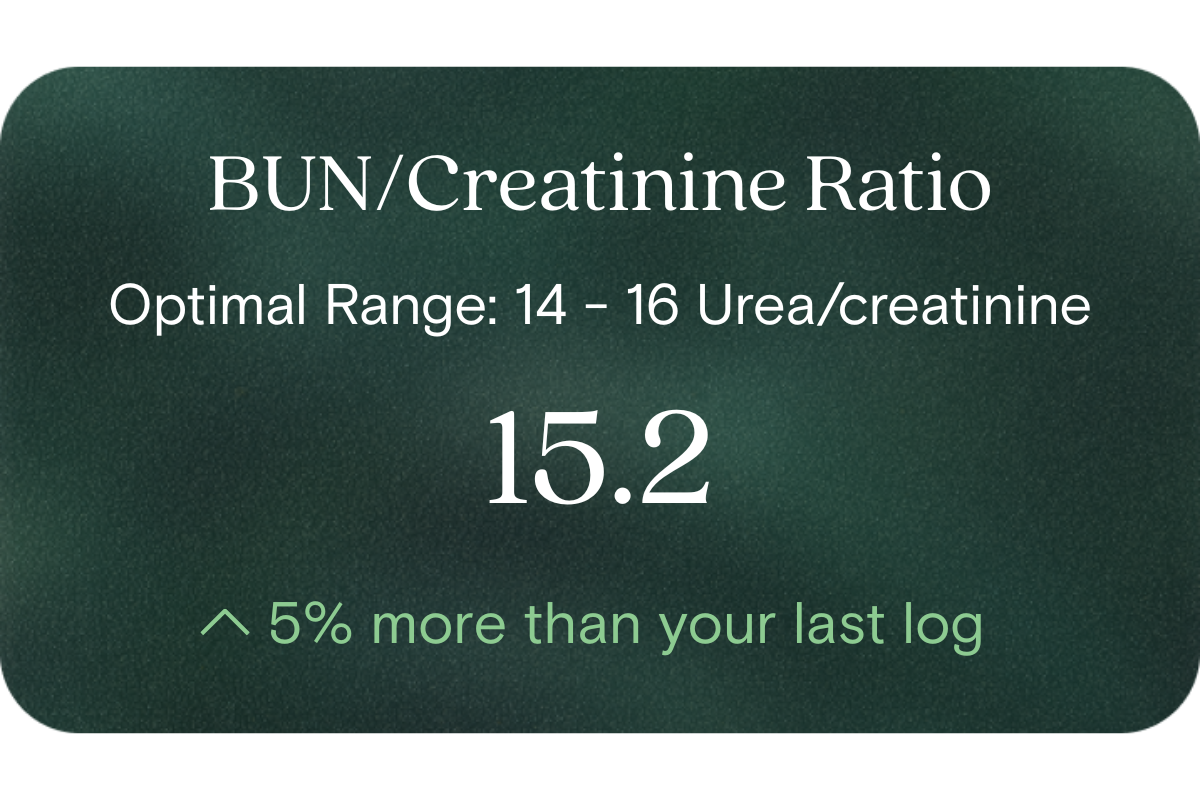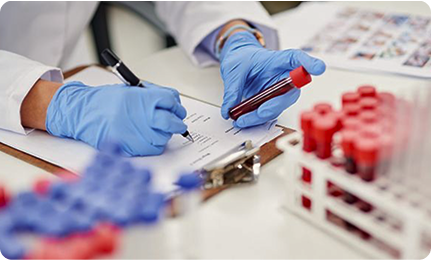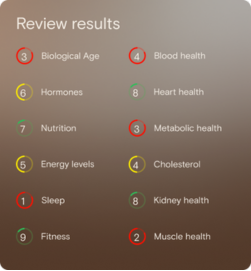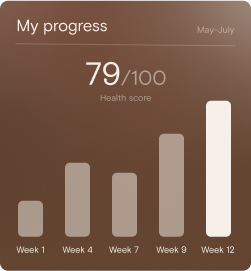What is the BUN/Creatinine Ratio (Urea/Creatinine Ratio)?
The urea/creatinine ratio compares two waste products in your blood — urea from protein metabolism and creatinine from muscle activity — to assess how well your body is balancing protein turnover and kidney filtration.
Why does it matter for long-term health and wellbeing?
This ratio provides a window into how efficiently your body is processing nutrients and maintaining metabolic balance. Stable values indicate your kidneys are filtering properly and your body’s protein metabolism is well regulated, supporting consistent energy and recovery.
What’s an optimal level of BUN/Creatinine Ratio?
- Reference range: 10–20
- Optimal range: Around 15.5
These values are based on Australian laboratory standards for urea/creatinine measurement.
What influences BUN/Creatinine Ratio levels?
Levels can vary depending on hydration, dietary protein intake, physical activity, and muscle mass. Periods of dehydration or high protein diets can increase the ratio, while low protein intake or overhydration may reduce it.
What does it mean if BUN/Creatinine Ratio is outside the optimal range?
A value outside the optimal range may indicate that your metabolism or hydration status is imbalanced. For example, an elevated ratio could suggest increased protein breakdown or reduced fluid balance, while a lower ratio may point to reduced protein turnover.
How can I support healthy BUN/Creatinine Ratio levels?
Staying hydrated, maintaining balanced protein intake, and engaging in regular physical activity help support a healthy ratio. Tracking your results over time can also help you see how your habits influence your metabolic and kidney function.
This information is provided for general health and wellness purposes only and does not replace medical advice.
References
- Royal College of Pathologists of Australasia (RCPA). (2024). RCPA Manual – Kidney Function Tests. Sydney: RCPA.
- Australian Institute of Health and Welfare (AIHW). (2023). Kidney health in Australia 2023. Canberra: AIHW.
- Lin, Y., Li, Y., Zhang, M., et al. (2022). Association between urea-to-creatinine ratio and metabolic health: A population-based analysis. Nutrients, 14(5), 1023.
- Oda, E. (2015). Blood urea nitrogen to creatinine ratio as a metabolic marker in healthy adults. Clinical Biochemistry, 48(12), 768–772.




















.png)


.svg)

